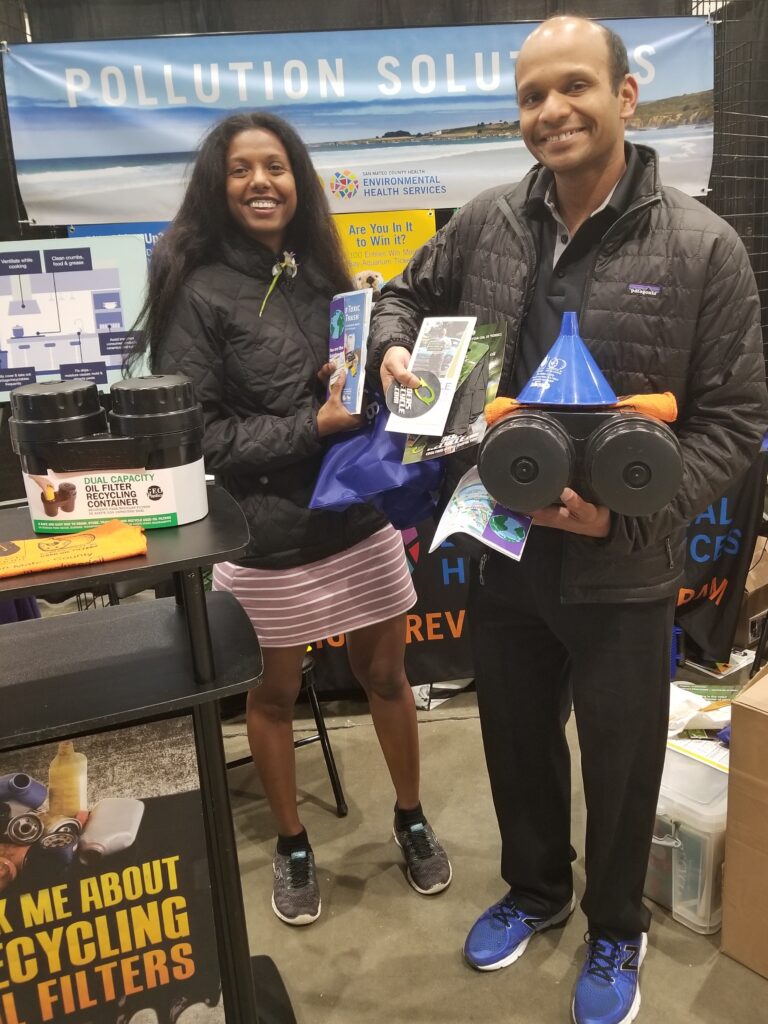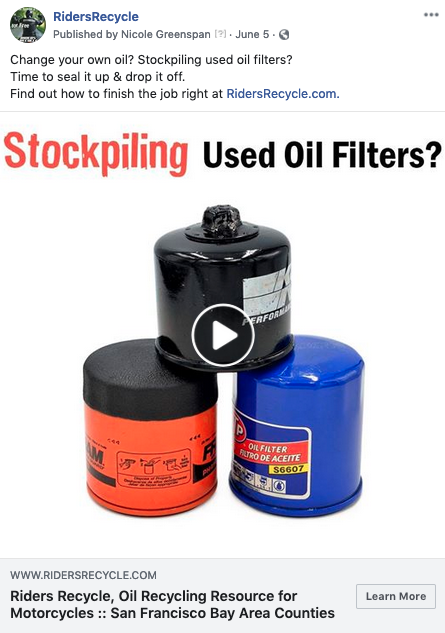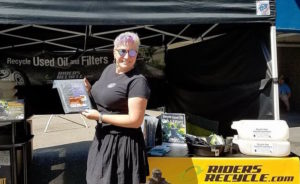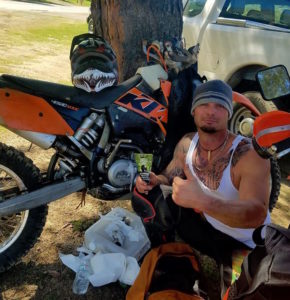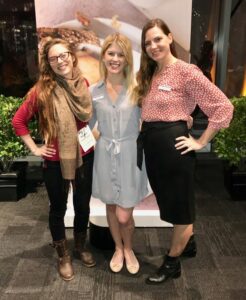
While we often work on projects that make composting cool, more and more of Gigantic’s clients are moving up the food recovery hierarchy and asking for outreach about reducing food waste at the source. The goal of cutting food waste in America in half by 2030 was central to the 2019 Food Waste Summit, hosted by ReFED in San Francisco.
The theme was “moving from awareness to action”, with speakers sharing strategies to cut food waste while increasing food security, spurring economic growth and combating climate change. They “set the table” with the cascading impacts of wasting food, gave a “toast to progress” with examples of success at food businesses, and shared innovative approaches to preventing food waste throughout the food system. There was even a cooking demo from one of America’s top chefs, Tiffany Derry, who encouraged attendees to partner with chefs to engage more communities with approachable stories about the value of food.
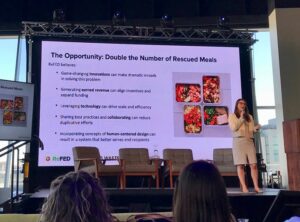
With 40% of food wasted in this country while 40 million Americans are food insecure, there was a big emphasis on how to close the hunger gap with food recovery. ReFED highlighted their Nonprofit Food Recovery Accelerator program with the goal to double the number of rescued meals in America. Nonprofits like Replate, Seeds That Feed, Plentiful, and Brighter Bites shared how they’re exploring innovative earned revenue, technology and human-centered design solutions to scale healthy food access with dignity for the millions facing food insecurity. While these solutions provide real relief, the question came up of whether they go far enough to address the core causes of hunger or food waste in America.
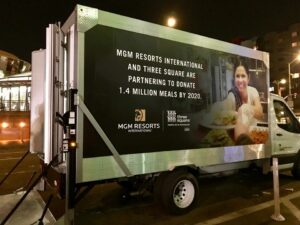
The Summit showcased several technology solutions for better food storage and transport, waste tracking, and end of life management, including Seal the Seasons, Goodr, Leanpath, Winnow, and Mobius. The “Mobile Blast Chiller” van, pictured at right, was developed by MGM Resorts International, Peravan, and Three Square in Las Vegas, to rapidly cool prepared food as it drives, improving food transport safety and efficiency. Apeel Sciences shared how they’re challenging the notion that we need single-use plastic packaging to solve the food waste problem with a peel-inspired produce coating that keeps produce fresher, longer.
ReFED emphasized the need for more public-private partnerships to create demand for waste reduction like the Pacific Coast Collaborative (PCC) and the Federal Winning on Reducing Food Waste Strategy. Government has a key role to play in improving donation liability protection and awareness, standardizing date labeling (e.g. “best if used by” date), and incentivizing organics from the landfill and edible food recovery with bills like SB 1383. The Summit wrapped up with a panel on turning waste into value where they emphasized the need for strong government regulations to ramp up organics recycling capacity given the current economic conditions.
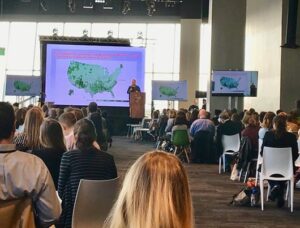
When I reflect on the Summit and the amazing conversations during and afterwards, I’m left wondering who was not in the room and how that might have changed the dynamic. How we don’t have all the answers, as Ami McReynolds, Chief Equity and Programs Officer at Feeding America observed, and that we need to create a more inclusive environment to bring new voices to the conversation. “How can we build and earn trust with communities?” McReynolds asked at the end of her presentation, “What will it take to be bold and courageous collaborators with communities?” We’re grateful for our incredible clients who are working closely with communities to co-create solutions that address the real needs and root causes of these complex challenges.
